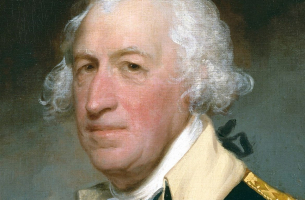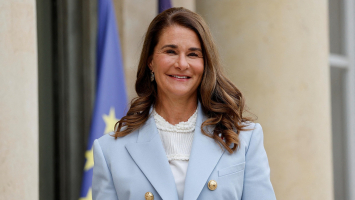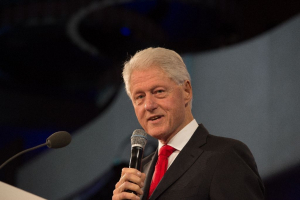Top 7 Interesting Facts about Bill Gates
Despite his popularity, there are many things that the world does not know about Bill Gates, the man behind the American multinational company Microsoft. If ... read more...you ever wonder what kind of person Gates is off the stage and behind the cameras, allow Toplist to introduce a few interesting facts about Bill Gates.
-
One of interesting facts about Bill Gates is that he dropped out. In the fall of 1973, Bill Gates enrolled at Harvard as a pre-law student while also taking a lot of graduate-level computer science and mathematics classes. When he created an algorithm to solve a conundrum presented by Professor Harry Lewis in his combinatorics course, he swiftly won academic recognition at the esteemed university. Together with computer science theorist Christos Papadimitriou, Gates released the solution that, for more than 30 years, was the fastest.
After two years, Gates took a leave of absence from Harvard to work with Allen to create Microsoft, originally known as Micro-Soft (a contraction of the words "microcomputer" and "software"). Having the option to go back to school had served as a safety net, according to Gates in a 1994 interview: "If things hadn't worked out, I could've always gone back to school." I had a leave of absence. "
As it turned out, Gates never went back to school. But more than 30 years later, Harvard conferred an honorary doctorate on him. In addition to accepting the honorary degree, Gates spoke at the university's commencement that year. He described his time at Harvard as "a great experience... Life in school was fascinating. I used to attend many classes that I hadn't even signed up for.

Photo: https://www.cnbc.com/2018/04/27/the-no-1-thing-bill-gates-wishes-hed-done-at-harvard.html 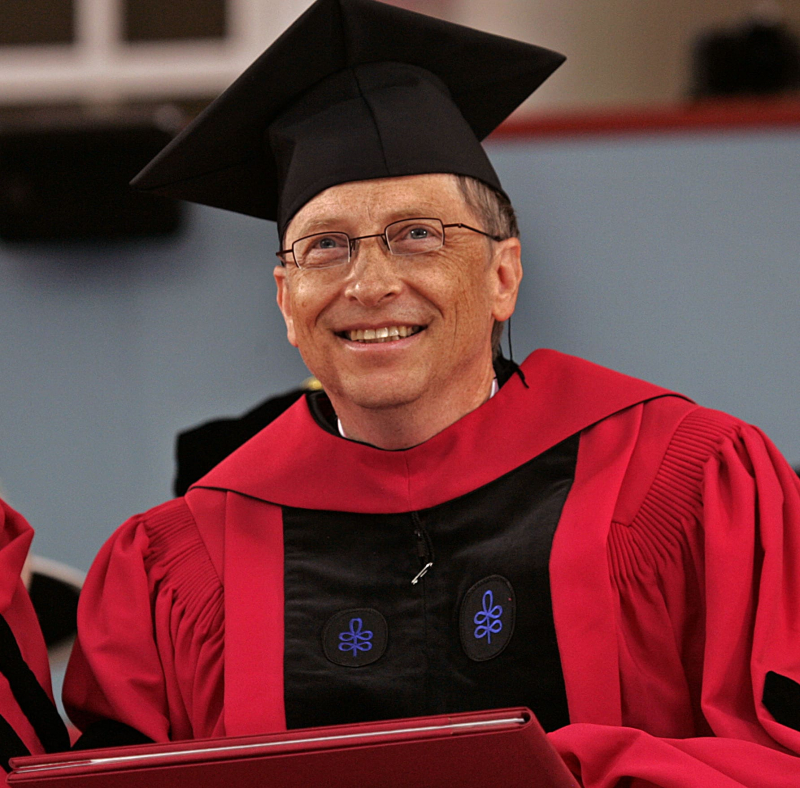
Photo: https://www.bestcolleges.com/news/analysis/2022/01/05/did-bill-gates-go-to-college/ -
When Bill Gates and his friend Paul Allen were in their early 20s, they were living in Albuquerque, New Mexico, where they later created Microsoft. The famous mugshot of a smiling, much younger Gates that is still shared online today was created when Albuquerque police booked Gates into jail on the evening of December 13, 1977.
The cause of Gates' arrest has "been lost to the sands of time," claims Ars Technica. The future tech billionaire was apprehended, according to Buzzfeed, for driving without a license and failing to stop at a stop sign. Regardless of the details, Gates' apparent disregard for his fate as he beams at the camera stands out.
The founder's mugshot may have actually become a Microsoft inside joke. One image from Outlook 2010, which was meant to show a person's silhouette, has an uncanny resemblance to the contour of Bill Gates' arrest photograph, as noted by Ars Technica. Gates acknowledged that American business tycoon Paul Allen had saved him in a Time magazine article.

Photo: https://twitter.com/wstlondongarden/status/1333151802183782402?lang=zh-Hant 
Photo: https://www.tatlerasia.com/the-scene/people-parties/sg-most-fascinating-bill-gates-facts-you-probably-did-not-know -
The fact that a standard college degree did not play a significant role in his success story. Bill Gates is highly recognized for his generosity and appears to have a special fondness for kids and education. The billionaire has strong beliefs about education, and he doesn't mind sharing them. According to a comment from him, "There's no shortage of things to do until we're educating every kid in a beautiful way until every inner city is cleaned up."
Bill excelled academically thanks to his love of computers, natural ability to learn, and capacity for memory. Bill received a score of 1590 out of 1600 on his SAT exam, which is only five points short of a perfect score. With such a high SAT score, he had little trouble getting accepted to the colleges of his choosing, and in the fall of 1973, he enrolled at Harvard University as a pre-law major. He quickly came to the conclusion that pre-law was not for him and shifted his attention to graduate-level computer science and mathematics.

Photo: https://www.theverge.com/2015/11/19/9759874/microsoft-windows-35-years-old-visual-history 
Photo: https://celebanswers.com/what-was-bill-gates-sat-score/ -
You must consider Bill Gates and Melinda Gates' three children to be extremely fortunate because they will someday amass all of their father's wealth. However, did you realize that they will only each receive $10 million? The $81.1 billion net worth of their father is much larger than this.
Bill feels that even a little portion of the Gates' riches will force their children to rely on themselves, even though it would make them among the world's wealthiest people. SFGate claimed that he said, "It's not a favor to kids to have them have tremendous quantities of cash." on "This Morning last year. It distorts everything they could possibly do, forging their own course.The Bill & Melinda Gates Foundation, which works to end disease, poverty, and hunger worldwide, is one of the charities to which the couple plans to donate the majority of their wealth. The Gateses and fellow billionaire Warren Buffett collaborated to develop the Giving Pledge in 2010, which urges more ultra-wealthy individuals to donate the bulk of their wealth to charitable causes.

Photo: https://www.tatlerasia.com/the-scene/people-parties/sg-most-fascinating-bill-gates-facts-you-probably-did-not-know 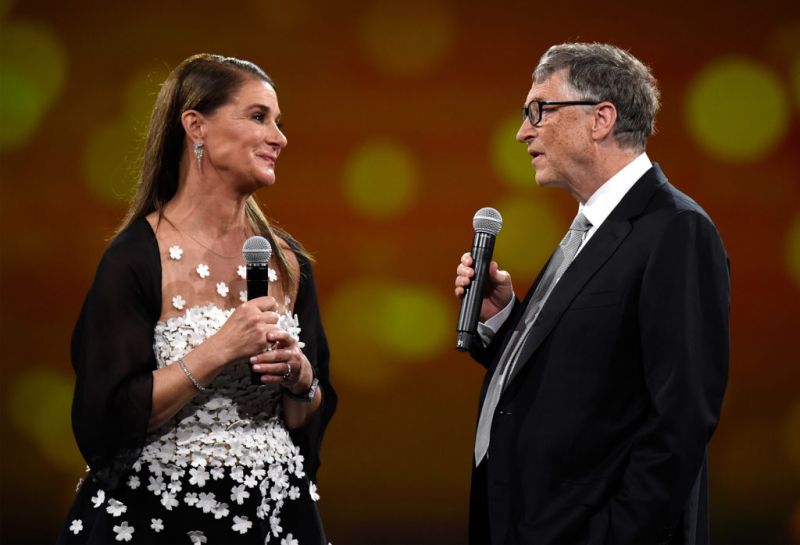
Photo: https://www.maxim.com/news/bill-and-melinda-gates-kids-to-receive-only-10-million-after-divorce/ -
The most intimate admission made by Bill Gates during his third AMA on Reddit today may have been, "I feel quite foolish that I don't know any other languages." I received A's in my Latin and Greek classes in high school, and I suppose it helped my vocabulary, but I really wish I knew French, Arabic, or Chinese. Gates comes from a large multilingual family, yet he is monolingual and can only speak English well. This is one of the interesting facts about Bill Gates.
His enthusiasm for learning French is intriguing. It's not like this language has somehow managed to become ubiquitous. Does Gates enjoy the sound of it? Could he have thought that speaking French would increase his seductive appeal? All he would say is that French is "the simplest" of his three-goal languages.
There is a basic assumption that everyone will speak English in American corporations. The co-founder of Microsoft, though, expressed surprise at Facebook CEO Mark Zuckerberg's commitment to a second language. Mark Zuckerberg, he added, "amazingly mastered Mandarin and conducted a Q&A with Chinese pupils." The utterly cynical will assert that Zuckerberg has two major motivations: a Chinese-American wife and a desperate desire to win over the Chinese government, which is not a fan of Facebook.
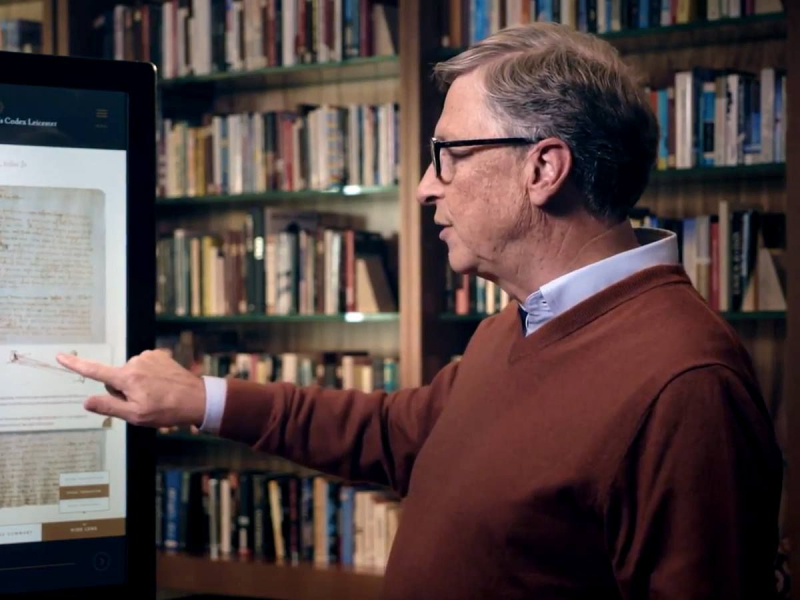
Photo: https://www.ted.com/talks/bill_gates_the_next_outbreak_we_re_not_ready?language=dz 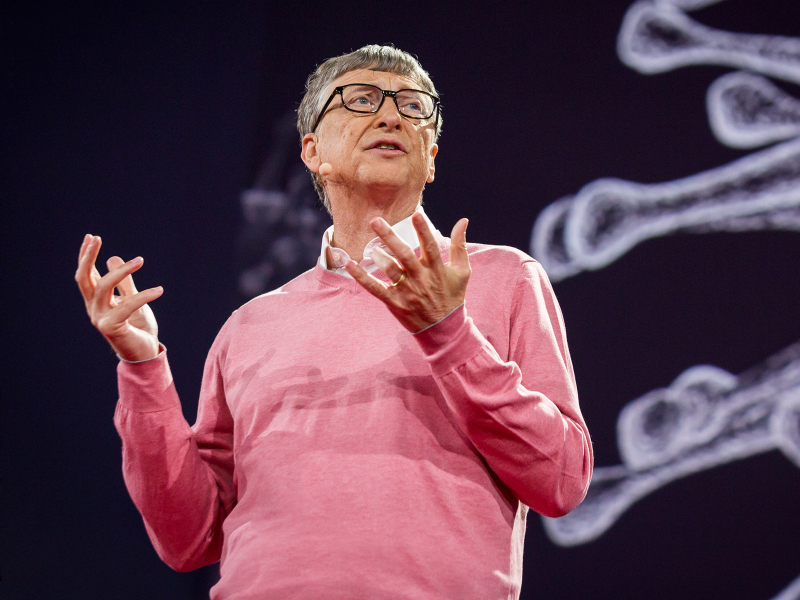
Photo: https://www.tatlerasia.com/the-scene/people-parties/ph-most-fascinating-bill-gates-facts-you-probably-did-not-know -
When asked what he would have done if Microsoft hadn't succeeded, Bill Gates replied as follows:
"I would probably work as an AI researcher. I was concerned I would miss the opportunity to perform fundamental work in that subject when I started at Microsoft. Although Gates and Paul Allen created Microsoft in 1975, artificial intelligence was a popular area of study in the 1950s and 1960s. Scientists and researchers learned that computers could solve math and word problems, outperform humans at checkers, and even speak English. Around this time, Gates was still a prep student and was beginning to gain attention for his extraordinary skills in computer and software programming."But little than a year after Gates arrived at Harvard, the US and British governments stopped funding any exploratory AI research that wasn't supported directly by their own governments. Following that, the nations went through what was referred to as an "AI winter" for almost five years. Beginning approximately 1987, there was an even longer "winter" that lasted for around another ten years.
Gates claims that he is "in the camp that is concerned about super intelligence," which also includes Stephen Hawking and Elon Musk, despite his long-standing interest in AI. Hawking thinks AI will one day "outsmart financial markets" and "out-invent human researchers," while Musk thinks a "Terminator-like situation" is possible.
It's interesting to consider how artificial intelligence may have evolved had Bill Gates begun his research in that area 40 years earlier. Either way, you might all be subject to machines by this point. Given how successful Microsoft has been, you'll never know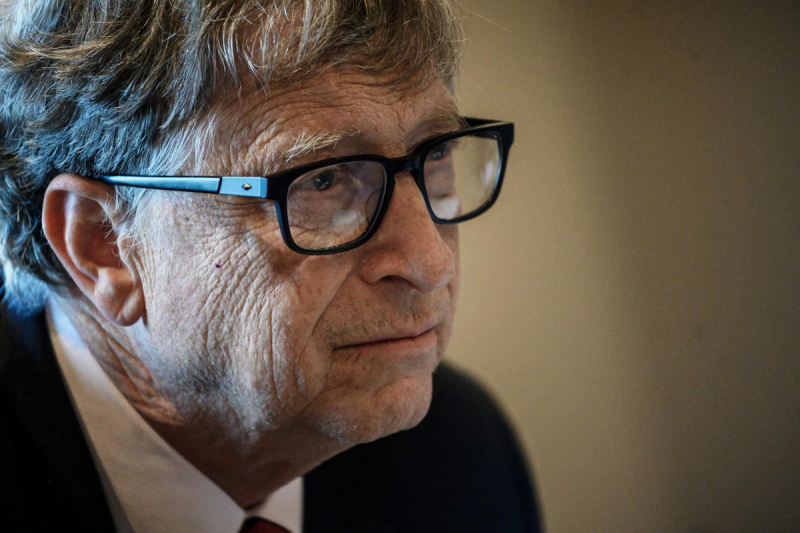
Photo: https://www.microsoft.com/en-us/research/video/a-conversation-with-bill-gates-hosted-by-eric-horvitz/ 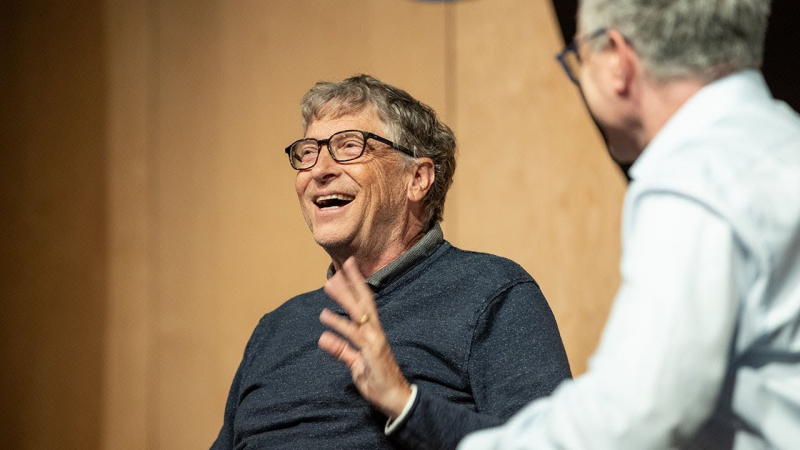
Photo: https://www.forbes.com/sites/jemimamcevoy/2021/12/07/bill-gates-reflects-on-his-divorce-being-alone-during-covid-and-the-most-difficult-year-of-his-life/ -
One of the interesting facts about Bill Gates is that there is a Netflix film about him. A three-part Netflix documentary titled Inside Bill's Brain: Decoding Bill Gates will take you through Bill Gates' life. Inside Bill's Brain: Decoding, a three-part Netflix documentary by Davis Guggenheim. The movie Bill Gates addresses the obscurity of its subject. What drives one of the richest persons in the world? How was he shaped? How did he come to have such complete dominance over a fiercely competitive business that the US government sued Microsoft for violating antitrust laws?
Guggenheim sort of addresses all of that. Inside Bill's Brain spans about three hours and covers the fundamentals of Bill Gates' life, including his upbringing, education, the leadership of Microsoft, union with Melinda, and co-management of his philanthropic organization.
However, there are instances when it looks as though the main focus of this documentary is the Bill & Melinda Gates Foundation. Each episode of Inside Bill's Brain focuses on one of the foundation's main programs, such as eradicating polio, producing a cleaner, safer nuclear power source, or improving sewage conditions in underdeveloped nations. Each of the three segments quickly switches between interviews, biographical information, and behind-the-scenes footage of the Gates team's charitable endeavors. Even when there is no obvious relationship between the subjects, Guggenheim avoids using conventional transitions and instead bounces from one to the next.
The point, apparently, is to replicate Bill Gates’ thought processes. Having spent most of his adult life juggling multiple complicated projects, Gates doesn’t have the kind of mind that functions in neat, straight lines. At one point, Melinda even laughs at this series’s title, saying that her husband’s brain is as cluttered and chaotic as the cheap apartment he once shared with Paul Allen when the two were building Microsoft.
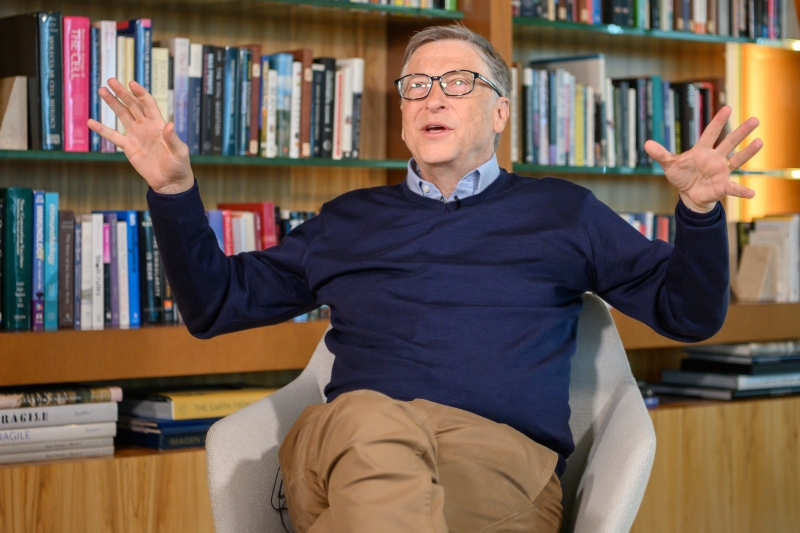
Photo: https://www.geekwire.com/2019/netflix-documentary-inside-bills-brain-offer-unique-look-bill-gates-work-big-problems/ 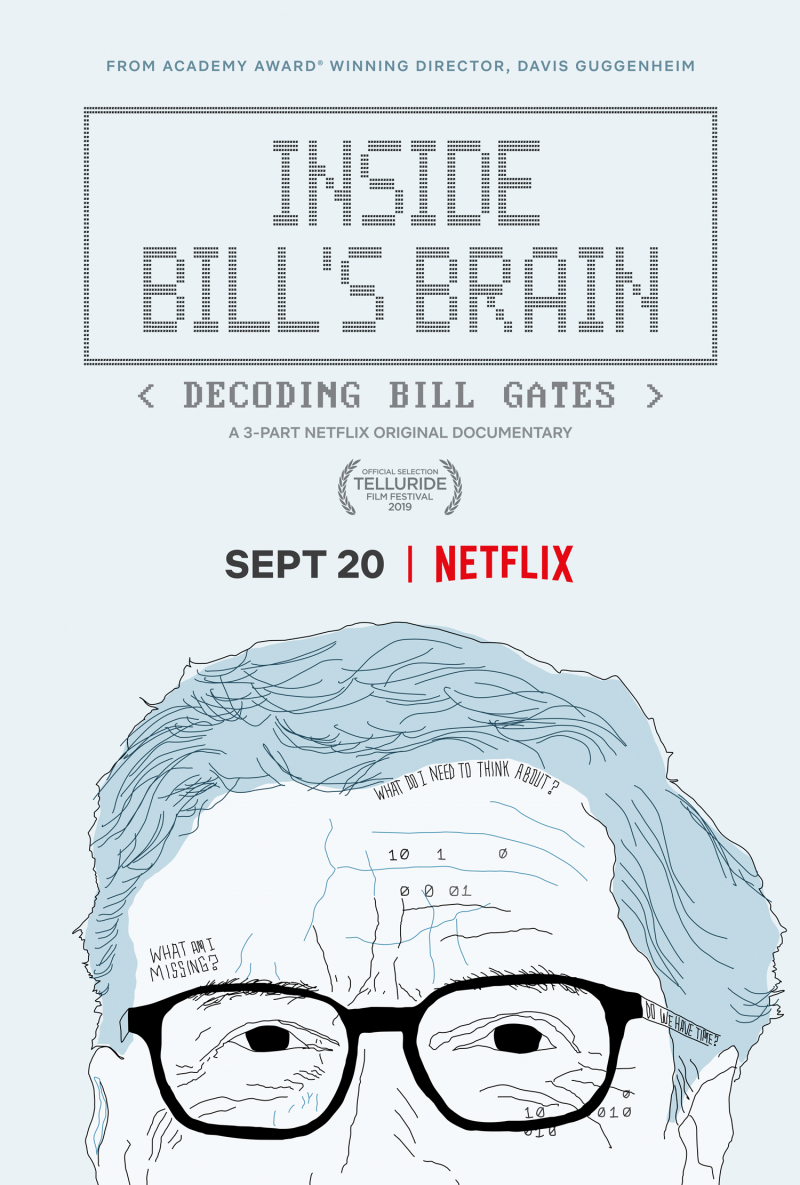
Photo: https://www.imdb.com/title/tt10837476/









